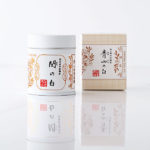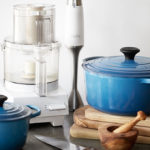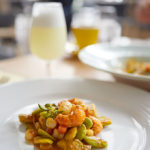

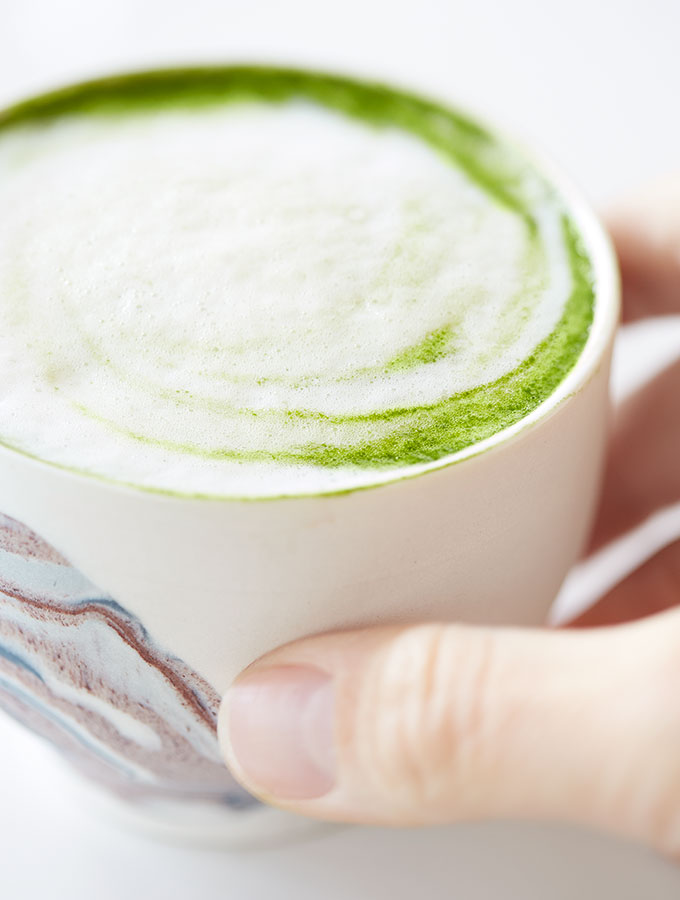
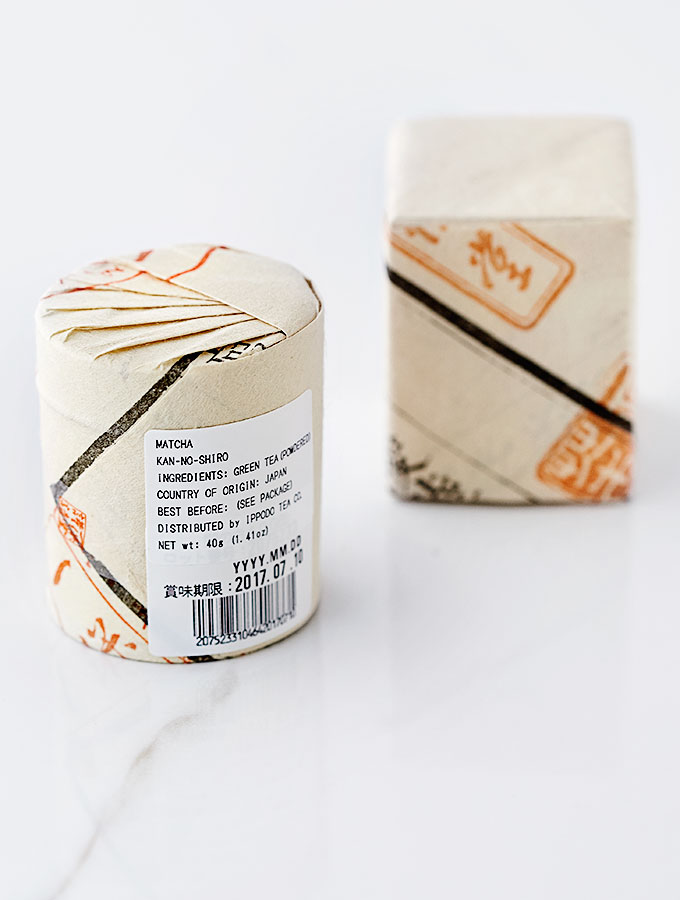
Your Source For 100% Pure Matcha Tea
After a months-long hunt for genuine matcha tea, and finding a few reliable but complicated to shop stores located in Japan, I finally happened upon Rikumo Concept Store. Located right in Philadelphia, Rikumo sells two varieties of Ippodo Matcha, and is one of few US based sources for the genuine Kyoto cultivated, umami bursting powdered tea.
This is important because with numerous options available on Amazon or major retailers like Whole Foods, quite often what’s sold as matcha is not what you’d expect. When green tea powder is coming from teas grown in China, it’s simply not matcha. Like Traditional Balsamic Vinegar, matcha tea comes with a regional distinction, which means that it should come from the Kyoto region.
The issue isn’t just whether the tea is labeled as coming from Japan or Kyoto, it’s about authenticity. I purchased a “ceremonial grade” matcha tea on Amazon a while back labeled as “ceremonial grade” matcha from Kyoto, and although it had a pleasant taste and texture, when I began to dig I found that the tea was distributed from Australia and their production simply couldn’t be traced back to Kyoto. Frustrated by the lack of transparency of most matcha brands, this inspired me to set out in pursuit of a reliable matcha source for us North American matcha lovers.
A unique terroir
Because of the unique soil characteristics found in Southern Japan, and specifically in the areas surrounding Kyoto where a blanket of misty air commonly envelops the fields, matcha coming from Southern Japan has a completely different quality than green tea powder coming from China.
The difference can be spotted in the muted color, gritty texture and often chalky, bitter taste of powdered teas from China; as compared to the electric green hue, fine texture and full-bodied smooth taste of Japanese matcha.
But it’s not just the unique alchemy of soil and wet air that makes the difference. In Japan traditional matcha is produced by a time-honored method that results in the the rich flavor and aesthetic qualities that we associate with matcha, it’s:
- shade-grown
- steamed
- air-dried
- stone-ground
Most Chinese powdered teas are not coming from shade-cultivated conditions, then once harvested they’re pan-fried and usually ground by machines. All contributing to the wildly different color and taste. I’ve experienced both, and the difference is undeniable! It is simply a different tea. Although China is the birthplace of tea and produces some of the world’s finest teas, matcha is not one of them.
In addition to the aesthetic experience, another reason to make sure your matcha is coming from the Kyoto region is that teas from China are more likely to be contaminated with toxins.
In 2012 Greenpeace randomly tested 18 teas from China and found that they were contaminated with pesticides, including banned hazardous chemicals like methomyl and endosulfan.(source, source) Japanese tea leaves on the other hand have never been found to be contaminated with either pesticides or radiation, even after the 2011 tsunami.
Ippodo Matcha
Shade-cultivated matcha tea leaves, rich with chlorophyll and amino acids, have a full-bodied, velvety smooth taste that finishes sweet. According to Ippodo Tea this mellow umami flavor is specifically the result of the L-theanine present in their shade-grown matcha. You can expect an ever more pronounced umami with higher quality ceremonial grade teas.
Ippodo Tea’s Kan-no-shiro Matcha available at Rikumo has a neon green hue, fine powder texture and is cultivated in Uji directly south of Kyoto. It’s reasonably priced at $38 and with 2 grams per serving will yield 20 cups of genuine matcha. Kan-no-shiro has a lighter taste then higher grade Ippodo teas, but compared to most matcha teas available in North America, I’m sure you’ll find the taste to be as wonderfully rich and decadent as I have.
Eat Your Matcha Too
CLG Reader Appreciation
You may have noticed that my last couple product features have been accompanied by a Clean Living Guide Insider discount. This is because I’ve made it part of my mission to broker special promotions on the incredible products I share with you.
I’m not an affiliate of Rikumo and have not been affiliated with the last few vendors I’ve featured. These sales are just a gift to you, because I want you to have the best of the best, and hope that these special promotions will inspire you to take the leap to trying these, sometimes life altering products.
What I’ve got in store for you with Rikumo is free shipping! Shipping cost me quite a bit when I placed my order for these teas and a some heavy kitchen products. It’s quite a savings since you get free shipping on your entire order! If you love Japanese products, here’s your chance to stock up on tea, ceramics and more.
Use this code for free shipping on your entire order:
CLGSHIPPING
The fine print: this code is good until May 31, 2017, and is limited to 1 per customer.
